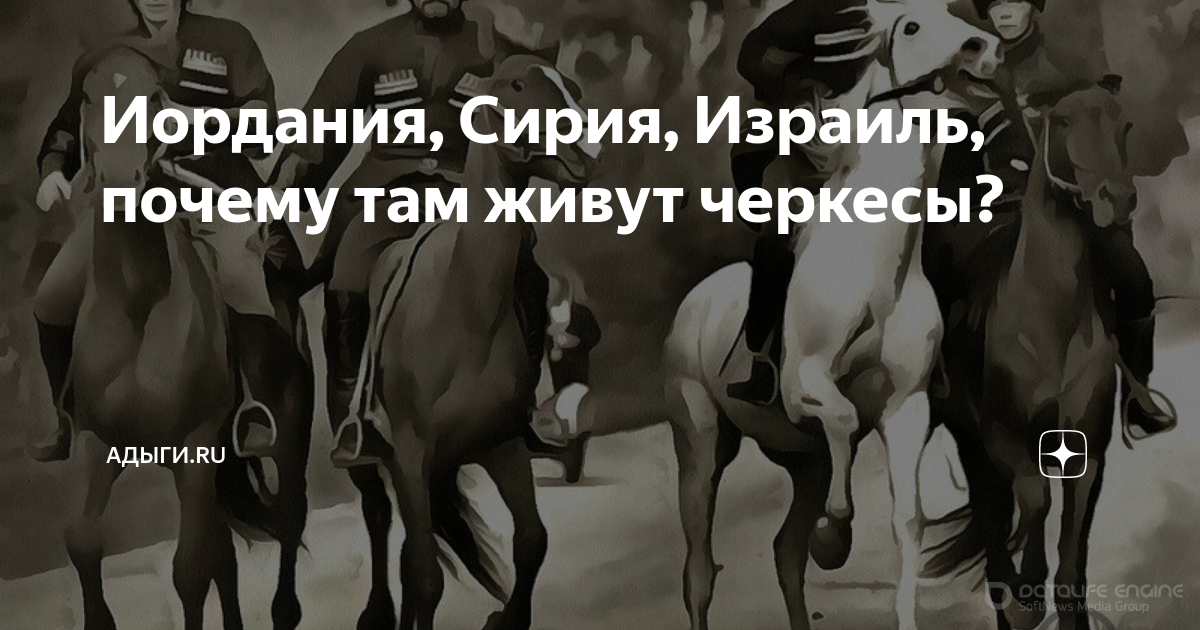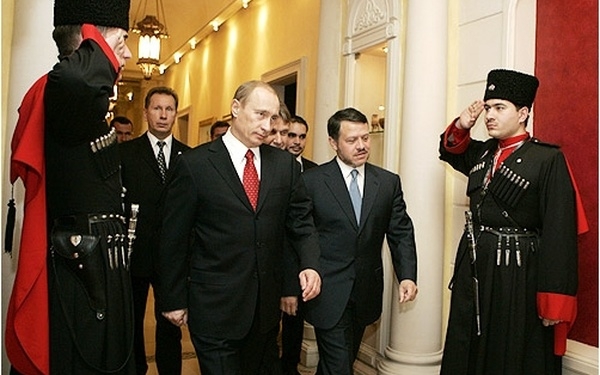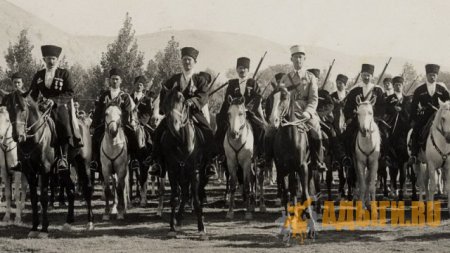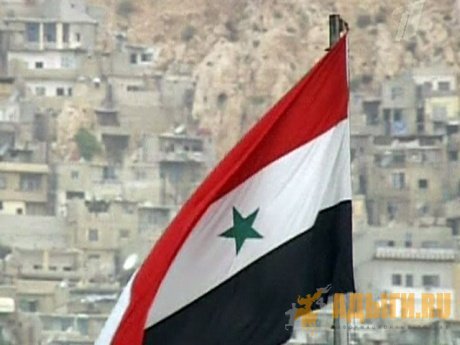FAR OFF CIRCASSIA

This is not a vast country like China, or Hindostan. It may be called a nook, it is so small compared with some great kingdoms: but it is famous on account of the beauty of the people. They are fair, like Europeans, with handsome features, and fine figures. But their beauty has done them harm, and not good; for the cruel Turks purchase many of the Circassian women, because they are beautiful, and shut them up in their houses. Perhaps you will be surprised to hear that the young Circassians think it a fine thing to go to Turkey—to live in fine palaces and gardens, instead of remaining in their own simple cottages. But I think that when they find themselves confined between high walls, they must sigh to think of their flocks and their farms at home, and more than all, of the dear relations they have left behind.
Circassia is a pleasant country, situated near the noble mountains of Caucasus. The snow on the mountains cools the air, and makes Circassia as pleasant to live in as our own England. Indeed, if you were suddenly to be transported into Circassia, you would be ready to exclaim, "Is not this England? Here are apple-trees, and pear-trees, and plum-trees, like those in my father's garden: those sounds are like the notes of the blackbird and thrush, which sing among the hawthorns in English woods."
But look again, you will see vines interlacing their fruitful branches among the spreading oaks. You do not see such vines in England. But hark! what do I hear? It is a sound never heard in England. It is the yell of jackals.
MANNERS OF THE PEOPLE.—There is no country in the world where the people are as kind to strangers as in Circassia. Every family, however poor, has a guest-house. There is the family-house, with its orchard, and stables, and at a little distance, another house for strangers. This is no more than a large room, with a stable at one end. The walls are made of wicker-work, plastered with clay. There is no ceiling but the rafters, and no floor but the bare earth. Yet there is a wide chimney, where a blazing fire is kept up with a pile of logs. And there is a sofa or divan, covered with striped silk, and many neat mats to serve as beds for as many travellers as may arrive. The wind may whistle through the chinks, and the rain come through the roof, but the stranger is well warmed, and comfortably lodged; and above all, he has the host to wait upon him with more attention than a servant. The supper is served as soon as the sun sets.
But where is the table? There is none. Is the supper placed on the floor? Not so. It is brought in on stools with three legs. They answer the purpose of tables, trays, and dishes, all in one. What is the fare served up? This is the sort of dinner provided. On the first table is placed a flat loaf; the gravy in the middle, and the meat all round. When this is taken away, another table is brought in with cheese-cakes; a third with butter and honey; a fourth with a pie; a fifth with a cream; and last of all, a table, with a wooden bowl of curdled milk. The company have no plates; but each Circassian carries a spoon and a knife in his girdle, and with these he helps himself. The servants who stand by, are not forgotten: a piece of meat or of pie-crust is often given to one of them; it is curious to see the men take it into a corner to eat it there. There are many hungry poor waiting at the door of the guest-house, ready to help the servants to devour the remains of the feast; and there is often a great deal of food left; for there are generally ten tables, and sometimes there are forty tables. The guests are expected to taste the food on each, however many there may be.
Instead of wine, there is a drink called shuat handed to the guests: it is distilled from grain and honey. Vegetables are not much eaten in Circassia: for greens are considered fit only for beasts: and there are no potatoes. Pies, and tarts, and tartlets of various kinds are too well liked, and the finest ladies in the land are skilful in making them.
The family live in a thatched cottage, called "the family-house." It is not divided into rooms. If a man wants several rooms, he builds several houses.
As you approach the dwelling of a Circassian, you hear the barking of dogs, and upon coming nearer, you see women milking cows, and feeding poultry, and boys tending goats, and leading horses.
If you go into the farm-yard, you will see among the animals, the buffalo—but no pig. There are, however, wild boars in the woods.
CIRCASSIAN WOMEN.—They are not shut up as Hindoo, and Chinese, and Turkish ladies are. They do not indeed go into the guest-house to see strangers; but strangers are sometimes invited into the family-house to see them.
An Englishman, who visited a family-house, was introduced to the wife and daughter. They both rose up when he entered: nor would they sit down, till he sat down; and this respect ladies show not only to gentlemen, but even to the poorest peasants. The only furniture in the house was the divan, on which the ladies sat; a pile of boxes, containing the beds, which were to be spread on the floor at night; and a loom for weaving cloth, and spindles for spinning.
The daughter, who was sixteen, was dressed in a skirt of striped silk, with a blue bodice, and silver clasps; and she wore a cap of scarlet cloth, adorned with silver lace—her light hair flowing over her shoulders: yet though so finely arrayed, her feet were bare; for she only put on her red slippers when she walked out. The mother was covered with a loose calico wrapper, and her face was concealed by a thick white veil. The visitor laid some needle-cases at the ladies' feet, for it is not the custom for them to receive presents in their hands.
The needle-cases greatly delighted the young Hafiza, and her mother. The present was well chosen, because the Circassian women are very industrious, supplying their husbands and brothers with all their clothes, from the woollen bonnet to the morocco shoe. The wool, the flax, and the hemp, are all prepared at home by the mothers, and made into clothes by the girls, who first spin the thread, then weave the cloth, and finish by sewing the seams. Some girls are very clever in knitting silver lace for trimming garments. A girl named Dussepli was famous for her skill in this art, indeed her name signifies, "Shining as lace."
An Englishman went to the place where she lived to buy some of her lace. He was shown into the guest-house, and he soon saw Dussepli approaching in a pair of high pattens. At first sight there was nothing pleasing in Dussepli but when she spoke she seemed so kind, and so true, that it was impossible not to like her. By her industry in knitting lace, and dyeing cloth, she helped to support her father, who was poor.
THE CIRCASSIAN MEN.—War is their chief occupation. Working in the fields is left to the women, and the little boys, and the slaves. There is, alas! great occasion for the men to fight, as the land has long been infested with many dangerous enemies.
The Russians are endeavoring to conquer the Circassians: but the Circassians declare they will die sooner than yield. Long ago the enemies must have triumphed, had it not been for the high mountains which afford hiding-places for the poor hunted inhabitants. Every man carries a gun, a pistol, a dagger, and a sword; and the nobles are distinguished by a bow, and a quiver of arrows. The usual dress is of coarse dark cloth, and consists of a tunic, trowsers, and gaiters. The cap or bonnet is of sheep-skin, or goatskin.
The boys are taught from their infancy to be hardy and manly. They are brought up in a singular way. Instead of remaining at home, they are given at three years old, into the care of a stranger: and the reason of this custom is, that they may not be petted by their parents. The stranger is called "foster-father," and he teaches any boy under his care to ride well, and to shoot at a mark. The boy follows his foster-father over the mountains, urging his horses to climb tremendous heights, and to rush down ravines; and appeasing his hunger with a mouthful of honey from the bag, fastened to his girdle. Such is the life he leads, till he is a tall and a strong youth; and then he returns home to his parents. His foster-father presents him with a horse, and weapons of war, and requires no payment in return for all his care.
Men brought up in this manner must be wild, bold, restless, and ignorant. Such are the Circassians. They care not for learning, as the Chinese do, but only for bravery. We cannot wonder at this, when we remember what enemies they have in their land. The Russians have built many strong towers, whence they shoot at all who come near. But, not satisfied with this, they often come forth and rob the villages.
[img]Guz Beg the "Lion of Circassia."[/img]
Guz Beg the "Lion of Circassia." (''Sheretluko'' Kyzbech Tughuzique, 1777-1840)
There was a Circassian, (and he may be still alive,) called Guz Beg; and he gained for himself the name of the "Lion of Circassia." He was always leading out little bands of men to attack the Russians. One day he found some Russian soldiers reaping in the fields, and when he came near they ran away in terror, leaving two hundred scythes in the field, which he seized. But a great calamity befel this Lion. He had an only son. When he first led the boy to the wars, he charged him never to shrink from the enemy, but to cut his way through the very midst. One day Guz Beg had ridden into the thick of the Russian soldiers, when suddenly a ball pierced his horse, and he was thrown headlong on the ground. There lay the Lion among the hunters. In another moment he would have been killed, when suddenly a youthful warrior flew to his rescue;—it was his own son. But what could one do among so many! A troop of Circassian horse rushed to the spot, and bore away Guz Beg; but they were too late to save his son. They bore away the body only of the brave boy. Guz Beg was deeply grieved; but he continued still to fight for his country.
See those black heaps of ashes. In that spot there once lived a prince named Zefri Bey, with his four hundred servants; but his dwellings were burned to the ground by the Russians. That prince fled to Turkey to plead for help. What would have become of his wife, and little girls, if a kind friend had not taken them under his care? This friend was hump-backed, but very brave. Some English travellers went to visit him, and were received in the guest-house and regaled with a supper of many tables. Next day the little girls came to the guest-house and kissed their hands. The daughter of the hump-backed man accompanied them. The children were delighted with some toys the traveller gave them, and the kind young lady accepted needles and scissors. But where was the wife of Zefri Bey? A servant was sent to inquire after her, and found her in rags, lying on a mat, without even a counterpane, and weeping bitterly. Had no one given her clothes, and coverings? Yes, but she gave everything away, for she had been used, as a princess, to make presents, and now she cared for nothing. Such are the miseries which the Russians bring upon Circassia.
THE GOVERNMENT.—There is no king of Circassia; but there are many princes.
The people pay great respect to these princes, standing in their presence, and giving them the first place at feasts, and in the battle-field. But though the people honor them, they do not obey them.
There is a parliament in Circassia, but it does not meet in a house, but in a grove. Every man who pleases may come, but only old men may speak. If a young man were to give his opinions, no attention would be paid. The warriors sit on the grass, and hang up their weapons of war on the boughs above their heads, while they fasten their horses to the stems of the trees.
The speakers are gentle in their tones of voice and behavior. The Circassians admire sweet winning speeches. They say there are three things which mark a great man; a sharp sword, a sweet tongue, and forty tables. What do they mean by these? By a sharp sword they mean bravery, by a sweet tongue they mean soft speeches, and by forty tables they mean giving plentiful suppers to neighbors and to strangers. Are the Circassians right in this way of thinking? No—for though bravery is good, and speaking well is good, and giving away is good, these are not the greatest virtues: and people may be brave, and speak well, and give away much, and yet be wicked: for they may be without the love of God in their hearts. What are the greatest virtues? These three, Faith, Hope, and Charity. These are graces which come from God.
SERVANTS.—There are slaves in Circassia, called serfs. But they are so well treated, that they are not like the slaves of other countries. They live in huts round their master's dwelling; they work in the fields, and wait upon the guests, and share in the good fare on the little tables.
When a Circassian takes a Russian prisoner, he makes him a slave, and gives him the hardest work to do. Yet the Russians are much happier with their Circassian masters than in their own country.
Once a Circassian said to his Russian slave, "I am going to send you back to Russia." The man fell at his master's feet, saying, "Rather than do so, use me as your dog; beat me, tie me up, and give me your bones to pick." The master then told him that he had not spoken in earnest, and that he would not send him away, and then the poor fellow began to shout, and to jump with joy.
BROTHERHOODS.—There is a very remarkable plan in Circassia, unlike the plans in other countries. A certain number of men agree to call themselves "brothers." These brothers help each other on every occasion, and visit at each other's houses frequently. They are not received in the guest-house, but in the family-house, and are treated by all the family as if they were really the brothers of the master.
A brotherhood sometimes consists of two thousand, but sometimes of only twenty persons.
RELIGION.—Circassia, though beautiful, is an unhappy country. The Russians keep the people in continual fear; this is a great evil. But there is another nation who have done the Circassians still greater harm. I mean the Turks. And what have they done to them? They have persuaded them to turn Mahomedans. The greatest harm that can be done to any one, is to give him a false religion. There are no grand mosques in Circassia, because there are no towns: but in every little village there is a clay cottage, where prayers are offered up in the name of Mahomet. There can be no minaret to such a miserable mosque: so the man who calls the hours of prayer, climbs a tall tree, by the help of notches, and getting into a basket at the top, makes the rocks and hills resound with his cry. How different shall be the sound one day heard in every land; when all people shall believe in Jesus. "Then shall the inhabitants of the rocks sing—then shall they shout from the top of the mountains, and give glory unto the Lord" and not to Mahomet. (Is. xlii. 11, 12.)
But though the Circassians call themselves Mahomedans, they keep many of their old customs, and these customs show that they once heard about Christ.
It is their custom to dedicate every boy to God: but not really to God, for in truth they dedicate him to the cross. Let me give you an account of one of the feasts of dedication.
The place of meeting was a green, shaded by spreading oak-trees. In the midst stood a cross. Each family who came to the feast, brought a little table, and placed it before the cross; and on each table, there were loaves, and a sort of bread called "pasta." There was a blazing fire on the green, round which the elder women sat, while the younger preferred the shade of a thicket. The priest took a loaf of bread in one hand, and in the other, a large cup of shuat, (a kind of wine) and holding them out towards the cross, blessed them. While he did this, men, women, and children, knelt around, and bowed their heads to the ground. Afterwards, the shuat and the bread were handed about amongst the company. But this was only the beginning of the feast. Afterwards, a calf, a sheep, and two goats were brought to the cross to be blessed. Then a little of their hair was singed by a taper, and then they were taken away to be slaughtered. Now the merriment began: some moved forward to cut up the animals, and to boil their flesh in large kettles on fires kindled on the green; many young men amused themselves with racing, leaping, and hurling stones, while the elder people sat and talked. When the meat was boiled, it was distributed among the sixty tables, and then the priest blessed the food. And then the feasting began. Does it not seem as if the Circassians must once have learned about Jesus crucified, and about his supper of bread and wine, and about the Jewish feasts and sacrifices? Once, perhaps, they knew the true religion, but they soon forgot it, and though they still remember the Cross, they have forgotten Christ; and though they still bless the bread and the cup, they know nothing of redeeming love. Do you not long to send missionaries to Circassia? Well, some good Scotch missionaries went there some years ago, but alas! the Russians sent them away. Their thatched cottages may still be seen, and their fruitful orchards, but they themselves are gone. There are, however, a few German Christians in Circassia. They are not missionaries, but only farmers, therefore the Russians allow them to remain. They have a little church, where the Bible is read, and God is worshipped. You will be glad to hear a few Circassians may be seen amongst the congregation; they were converted by the Scotch missionaries, and they have remained faithful amongst their heathen neighbors.
Circassia is situated between two seas:—
The Black Sea, and
The Caspian Sea.
What a wonderful place is the Caspian Sea. It is like a lake, only so immensely large, that it is called a sea. The waters of lakes are fresh, like those of rivers; but the waters of the Caspian are salt, but not so salt as the salt sea. The shores of the Caspian are flat, and unwholesome. You might think as you stood there, that you were by the great ocean, for there are waves breaking on the sands, and water as far as the eye can reach, but there is no freshness in the air as by the real sea.
The mountains of Caucasus run through Circassia. They are quite low compared to the Himalaya; they are about the height of the Alps, and the tops are covered with snow. But the valleys between these mountains, are not like the Swiss valleys, which are broad and pleasant; but these valleys are narrow, and dark, and not fit to live in, yet they are of great use as hiding-places for the Circassians. When pursued by a Russian, a Circassian will urge his horse to dash down the dark valley, and lest his horse should be alarmed by the sight of the dangerous depth below, he will cover the animal's eyes with his cloak. Thus, many a bold rider escapes from a cruel soldier.
©www.heku.ru







